
Maundy Thursday foot washing
On Maundy Thursday, clergy wash the feet of parishioners or other clergy, following Christ’s example when He washed the feet of His disciples. At Holy Trinity, Yorkton, Archdeacon Kim Sherwin kneels to wash the feet


On Maundy Thursday, clergy wash the feet of parishioners or other clergy, following Christ’s example when He washed the feet of His disciples. At Holy Trinity, Yorkton, Archdeacon Kim Sherwin kneels to wash the feet
Submitted
SWIFT CURRENT (Qu’A)
— After about a month in the parish of St. Stephen, Rev. Leonard Botchway said he found the Diocese of Qu’Appelle to be very welcoming, with a friendly atmosphere.
Bishop Helen Kennedy appointed Botchway to St. Stephen for a nine-month term, while the parish waits for the arrival of the priest chosen after an extensive search process.
Completely independently, Botchway had come to Canada looking for an opportunity, and went to Swift Current because he had friends there. Bishop Kennedy says, “It certainly felt like a movement of the Holy Spirit when he came to ask if there was anything he could do in the diocese.”
After a number of meetings with St. Stephen’s vestry and leadership, she appointed Botchway.
Botchway hopes he will be able to continue serving God in the diocese after the term ends. He said Bishop Kennedy was very welcoming when they spoke on the phone, and meeting her in person was even
better, as she made him feel at home.
He also thanked Archdeacon Catherine Harper, who explained the dynamics and area of the diocese; and the rest of the Synod Office staff. Botchway mentioned that Archdeacon Lauren Miller had made time to take him for lunch and talk about effective priesthood in the diocese and in Canada.
Botchway came to Canada from Ghana, where he had served in the Diocese of Accra from 2010 to 2023. He was ordained in 2011, and received a master of arts in ministry from Trinity Theological Seminary, Ghana, in 2013.
He is currently working towards a Ph.D. in Christian organizational leadership through Newburgh Theological Seminary, Indiana USA.
While working for the church, Botchway was also head of the counselling department in the Ghana Education service.
He worked at Labone Senior High School and St. Alban Anglican School in Greater Accra, providing career counselling and student development
Continued on page 4
Submitted
ROME — Anglican and Catholic bishops of the Growing Together summit share their commitment and call for Christian unity and say it’s time to “walk together, pray together, and seek justice together,” according to a news release.
Anglican and Catholic
bishops participating in the ecumenical summit Growing Together have shared their postconference “Call” today.
Entitled “Our Common Witness, Calling and Commitment,” it came after a week-long gathering (Jan. 22-29) that saw the bishops meeting in Rome and Canterbury for pilgrimage

and discussion on joint mission and witness.
Meeting during the Week of Prayer for Christian Unity, the summit was attended by Catholic and Anglican bishop pairs, representing 27 countries.
During the summit, each pairing was commissioned by Pope Francis and the Archbishop of Canterbury,
during Vespers, at the basilica of Saint Paul outside the Walls in Rome.
The summit was organised by IARCCUM, an ongoing International Anglican-Roman Catholic Commission for Unity and Mission.
It is supported by the Dicastery for Promoting Christian Unity in
Rome and the Anglican Communion Office, Secretariat to the Anglican Communion.
“Our Common Witness, Calling and Commitment” covers important themes relevant to the Church and world affairs. It is written not only as a summary of the bishops’ commitment,
Continued from page 6

How do we put on the whole armour of God?
By Rev. Dell BornowskySeveral New Testament passages exhort the use of armour and weapons (2 Cor. 6:3-8; 10:3-5; Rom. 13:12; Eph. 6:10-18).
Although armour often connotes protective gear, the Greek word hoplon is general, including weapons or whatever instruments or equipment may be required for any particular task.
The writers of the New Testament are clear that using military language to teach discipleship is metaphorical or spiritual, and explicitly not intended to imply physical conflict with flesh and blood enemies (2 Cor. 10:3-5; Eph. 6:12 ).
In Ephesians, hoplon is compounded to form panoplia from which we derive panoply; in other words a full, complete outfit of armaments. It is not clear how far we should stretch each metaphorical pairing of an item of armour with the associated principles of discipleship.
However, the use of the term panoply implies that successful discipleship requires being completely equipped and fully armed.
Following Jesus is thus not something to be pursued casually or haphazardly. It is not a matter of picking a favourite aspect of discipleship and leaving the rest.
Some might emphasize truth to the exclusion of mercy or vice versa. Others might presume that as long as I have faith I can dispense with righteousness or vice versa. Without attempting to fully delineate “spiritual warfare,” here are a few suggestions about the functions of God’s armour that might help us develop a mentality conducive to putting on the armour that God knows we need.
The metaphor of armour suggests that if we don’t realize we are in a fight, we might not grasp what our armour is for. There is little doubt that Jesus’ followers are called to prepare for conflict.
Perhaps too much evangelism has been in the mode of “come to Jesus to get help with your problems.” A more
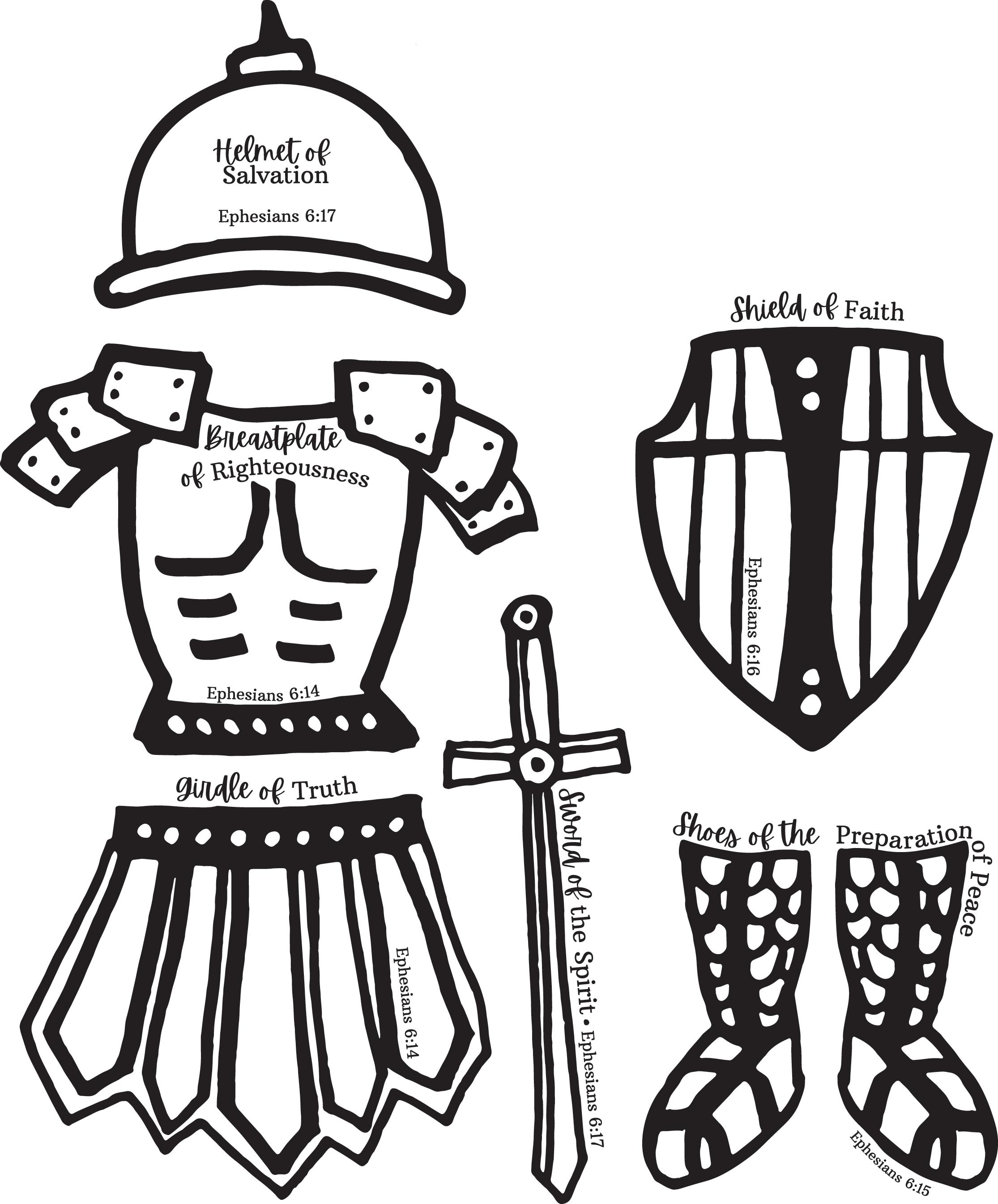
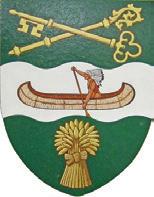

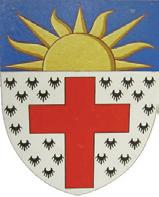
realistic invitation might be: “Come to Jesus to join in the kind of struggles and hardships that are worth both living and dying for.”
Hopefully in the process we resolve the irony of donning armour and gathering weapons in order to follow the One known as the Prince of Peace.
The Prayer Book summarizes our primary opponents as “the world, the flesh, and the devil.”
When it says “flesh” we may be surprized to realize one of the functions of God’s armour is to protect us from ourselves!
Jesus implied: Those who won’t admit they are sick won’t seek a doctor. Instead of being overconfident in ourselves, we need to concede how much we need God’s help and protection.
The first steps in the 12-step and AA programs are derived from this same basic prerequisite for
discipleship.
Then once we have recognized our initial need for that higher power, we need to learn ongoing dependence on God by developing the discipline and wisdom needed to follow an invisible and inscrutable God.
The paradox at this point is that although the power that transforms us is all God’s, the willingness to daily submit to that power is mostly all ours.
Another surprise might be that one prime arena of conflict is that of ideas. According to 2 Cor. 10, our armaments are for defeating arguments or reasoning, sometimes translated as presumptions or opinions, so that our thinking can be free to be obedient to Christ.
In our day of “alternate facts” and internet baloney, this is a sensitive area, but we cannot deny that Jesus’ teaching
is an alternate view of reality. Christian faith is reasonable enough, but for many it still seems foolish.
Coming to Christ often includes a new comprehension: ideas previously discounted begin to make sense.
Properly fitting armour should help us heed the apostolic call to non-conformity (Rom. 12:2) without becoming belligerent or too pedantic. A related function of our armour is “withstanding the wiles of the devil.” Our adversary’s attack is often subtle innuendo and insinuation. Brute strength is not the chief requirement.
Our armour is not to make us invincible, but to make us wise. Spiritual warfare is best conducted with a balance of courage and caution; confidence and humility.
There should be no socalled “friendly fire” in the church. Brothers and Continued on page 9
You may notice that this column is called challenges to the church, and not challenges in the church.
Most of us know about the challenges in the church. Many of us are dealing with numerous struggles as we hold our predominantly aging congregations together and find financial and human resources to support our ministry and worship.

Yet, the church needs to be challenged to keep us alert to spiritual issues that surround us. It needs to wrestle with the opinions of those who do not share those opinions. We are strengthened by having to defend what we believe rather than simply accept the thoughts of another.
Unfortunately, our brains and bodies are not designed in a way that handles conflict or disagreement well. Physiologically when we come into a “conflict of ideas” situation, our brain perceives them as threats, triggering our fight, flight or freeze instinct that takes over.
This kind of cognitive overload results in a paralysis to take
By Deacon Arleen ChampionIt has been said that children learn what they live. As parents, grandparents, church members and yes, church leaders, we need to look at what we learned and now live, because we influence those in our care.
We are called to be thankful people. Through the Last Supper, Jesus called us to be “eucharistic” people. Eucharist is an act at the heart of Christian worship. The word Eucharist is derived from the Greek word Eucharistia, which means “thanksgiving.”
It is the act of giving
in further information. Our brain has a reduced capacity to use logical reasoning. As a result, people may rely more on emotion and instinct rather than logic during intense debates.
So, when inflammatory statements are made, our brain refuses to hear the nuggets of wisdom that are also contained. As a way to become more aware of this phenomenon, one of the many Lenten series that is happening in our diocese is “Difference.”
It is a course that explores following Jesus in a complex and divided world, seeing transformation through everyday encounters.
Archbishop Justin Welby, after the publication of his book Reconciliation, brought together leading practitioners to create a course that would equip participants to navigate disagreements and divisions in our all-too-divided society.
It is a five-week course that any parish could benefit from doing and it is at no cost, yet has incredible value. It can be done online or in-person. The course invites us to “be curious” about the life of another; listen to their stories or view the world through their eyes.
Then we are invited to “be present,” let their story affect you, listen with open hearts to their experience, and encounter others with authenticity. Then finally “reimagine,” seek ways to respond rather than react.
Can we look for hope? Are there ways to rethink? Can we find opportunities to make change, or be change, in any given situation. “Reconciliation is not the ending of all difference, but the transformation of how we deal with difference.” – Archbishop Justin Welby
Each of the sessions has a short video of a lived experience of conflict, real conflict, sometimes between those caught in warring nations. It demonstrated how reimagining a way forward has transformed the lives of those involved.
We are then invited to explore a Scripture passage, and to make the connections between the Bible and a life lived. Participants can engage their own stories, as they are comfortable, to reimagine situations in which conflict or barriers are affecting their relationships with others. It has been a rewarding and valuable course, which I encourage anyone
thanks to God. In the middle is the word “charis.” It is Greek for “grace” — unmerited favour of God denoting undeserved actions of love and compassion. We give thanks for the grace we have been given.
Each time we share this meal, as Jesus did with His disciples in the Last Supper, we remember how He offered Himself on the cross for us, although we are unworthy of His sacrifice. The priest offers the Eucharistic prayer on behalf of those present, giving thanks for all God has given us in Christ.
Jesus gave us this act of thanksgiving with the command, “Do this in remembrance of me.”
Recognizing that Christ lives in each of us, he is behind each act of kindness and generosity shown towards us by His people.
If we don’t thank those who bless us, we, in essence, forget Jesus, and do not thank or acknowledge his hand in it.
Saying thank you is an act of thoughtfulness, an acknowledgement of kindness and generosity, a show of respect. It strengthens our relationships and it can change us, as giving thanks allows us to internalize our gratitude. In a perfect world, giving is a reciprocal relationship. In giving,
to check out.
As we practice not letting our brains become paralyzed in a conflicted situation and letting our emotions overtake a situation, we can challenge each other and the Church to look to our scriptures for ethical answers that are posed by demanding dilemmas in our society.
When we take a moment to respond, and not react, we could encourage Christians to examine and explore ways that our society may be making wrong turns thoughtlessly.
If we remember to engage deeply with faith knowing that we are all precious children of a living and loving God, our enemy is not our enemy any longer, but rather our sibling in Christ.
Maybe the lessons we take from this when we encounter a person who challenges our position on any given topic, be it as trivial as pineapple on pizza, or as important as end-of-life care, we might be well served to pause, be curious, be present, and re-imagine.
Recognizing the innate image of God indelible imprinted in all humanity, then treat that person as you would a friend, or befriend that person.
Dinah Maria Craik, an English poet (1826-1887), said, “A friend is one to whom one may pour out the contents of one’s heart, chaff and grain together, knowing that gentle hands will take and sift it, keep what is worth keeping, and with a breath of kindness, blow the rest away.”
we receive, whether as recipient of a gift or as giver of thanks.
Some grandparents are disappointed to not receive a thank you from a grandchild for a much-thought-out gift. Some go so far as to say that if children can’t acknowledge the gift, they are not going to give them presents anymore.
In most cases, it is not the lack of a formal thank you that disturbs the grandparents. It is the apparent break in the relationship. It is the interaction of love that flows between the giver and the receiver that they desire.
That same reaction can be heard in church
settings too. It is important that we, as church, extend our thanksgiving beyond the Lord’s table, to those who give of their time, talent and resources to build God’s Kingdom. How do we live and demonstrate healthy thanksgiving?
It doesn’t have to be complicated, but it needs to be intentional. Make a quick call; send a thank you card, note, email, or text; give a gift card; take someone for coffee; offer a small token of appreciation.
In particular we should enclose a personal thank you with each tax receipt. Equally, we should, as a congregation, acknowledge
Continued on page 4
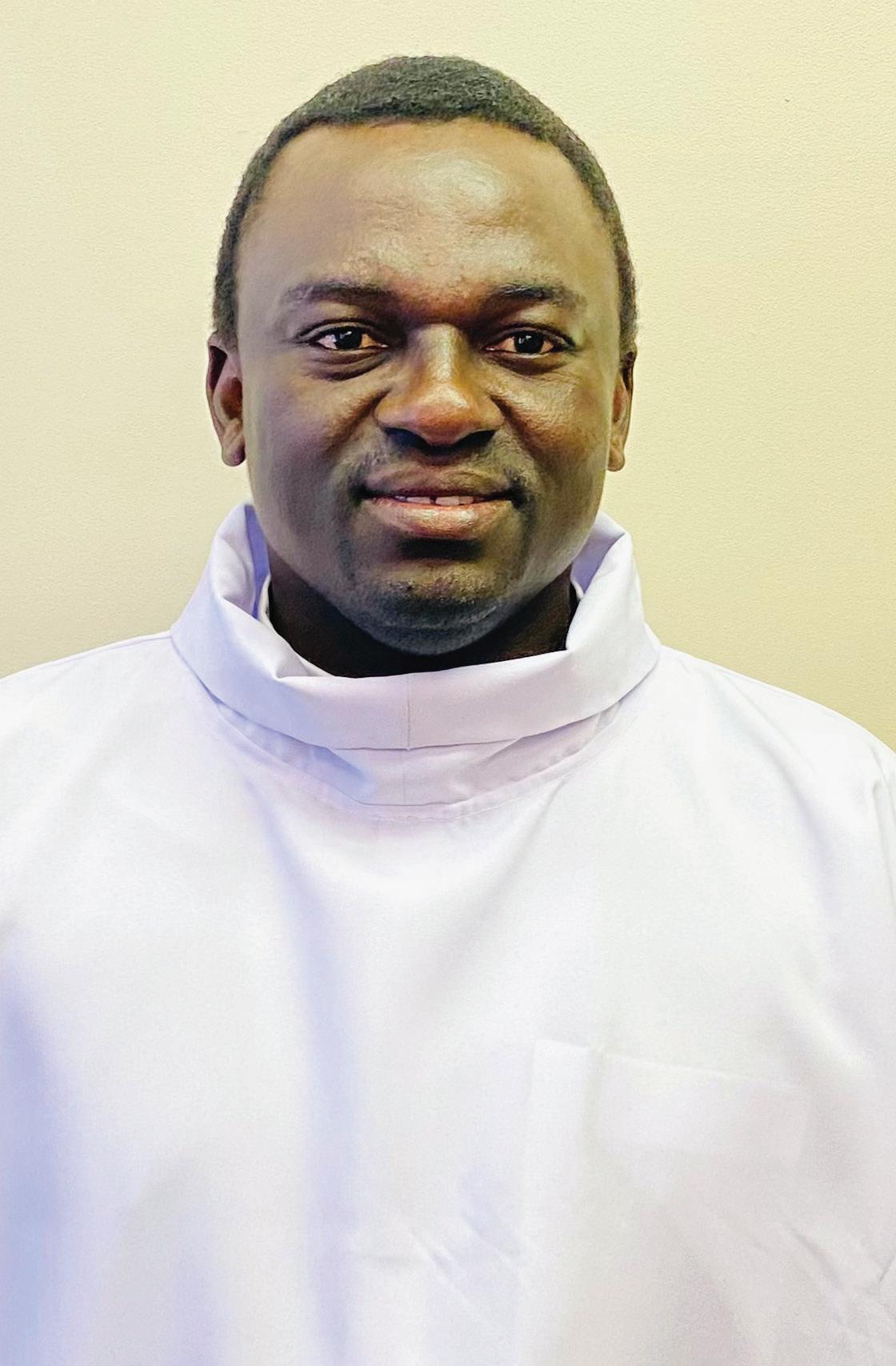
Rev.
g Saskatchewan Anglican online! Did you know you can read current and past issues of the Sask. Anglican online?
Visit www. anglicandiocesesaskatoon. com/saskanglican or on Facebook at www.facebook.com/ saskatchewananglican
g Licentiate in Theology Courses offered by College of Emmanuel and St. Chad and Western Education Collaborative Anglican Network (W.E.C.A.N.): Emmanuel and St. Chad College has been working with the WECAN group to develop a ministry preparation program relevant to the various Anglican contexts in Western Canada.
The local diocesan ministry schools make substantial contributions to the
Continued from page 1 guidance, and helping students with job-search skills. In addition to his theological degree, Botchway earned a bachelor of education and master of education in guidance and counselling.
He credits his mother as having the most influence in his religious life. “She loves God,” he said. “She did Bible studies with us and taught us how to pray.”
Botchway sounded excited by many features of his new diocese. He said it is well organized and has good leadership; and he is passionate about souls and the Great Commission. He also commented that the diocese supports the less privileged elsewhere in the world.
Botchway commended the vestry and
parishioners of St. Stephen, who kept the church going although they had no priest for quite a long time.
He says his priorities and interests in ministry include organizational leadership, counselling, youth and children, missions, evangelism and church growth.
Botchway is married and has three children — two girls and one boy. His family is still in Ghana, but is hoping to be able to join him in Swift Current soon.
In his spare time, he enjoys reading, listening to music, tennis, hockey, golf and swimming. For those wondering how to pronounce his surname, Botchway says that “Botch sounds like boootch,” and way is said just as it is spelled.
program by offering courses mapped out in the ESC-WECAN Licentiate in Theology handbook.
Whether you are feeling called to do more formal ministry or are drawn to taking certain courses, please contact the person named for the course or courses you are interested in doing.
At the same time, let your diocesan school co-ordinator know your plans.
If interested, please review the detailed list of fall and winter course located elsewhere in this issue.
g Courses at Queen’s House Retreat & Renewal Centre , 601 Taylor Street W, Saskatoon, SK S7M 0C9. For course information and to register for courses please contact: Sarah Donnelly, Programming Director:
306-242-1916 x 226; Email: programming@ queenshouse.org. Website at www. queenshouse.org
Upcoming services and weekly or monthly events:
g The Painting Table: All are welcome at the “Painting Table” held in the lower parish hall at Emmanuel Anglican Parish, 607 Dufferin Ave., from 7 to 8:30 p.m., the first Wednesday of each month. All art materials are supplied.
g All Saints Anglican Parish, Saskatoon; Choral Evensong followed by a potluck supper. Third Wednesday of each month; 5:15 p.m.
g Christ Church Anglican, Saskatoon: BAS Evening Prayer, every Thursday at 7 p.m.; Free community
Continued from page 3 and thank our wardens, vestry members, and volunteers, possibly in a worship service.
Jesus taught us how important it is to give thanks. His vision of heaven on earth is one of thanksgiving and grace among all people, lived out in love. We can’t tackle the whole world but we can be responsible for our little corner of it.
Cultivating an attitude of gratitude coupled with grace can spread the love of Christ and the good news of the Gospel in ways we might not even be able to imagine. Let’s make this world a better place, one thank you at a time.
Rev. Deacon Arleen Champion is regional dean for Souris Deanery, deacon at St. Aidan Anglican Church in Moose Jaw and a member of the Diocese of Qu’Appelle stewardship team.
supper, 5 to 7 p.m., the third Tuesday of each month; Community Coffee House, every Wednesday, 10 a.m. to noon; Nutflakes Videos, Fridays and Saturdays from 11 a.m. to 2 p.m.; Men’s breakfast the first Sunday of each month, a free breakfast by the men of the parish, 9:30 to 10:30 a.m.
g Prairie Centre for Ecumenism (PCE) Events (for more information on these events please see the more detailed notices posted elsewhere in this issue of the Saskatchewan Anglican).
g Winter Courses at the Refinery : The Refinery at Emmanuel Anglican Parish, Saskatoon is offering a series of courses during the Winter 2024 season on a variety of subjects including painting
and various other art media, Zumba, and various spiritual and meditative modalities. For more information or to register, please contact the Refinery at: www. emmanuelrefinery.org or 306 653-3549.
g To be included in a timely manner, brief notices should be supplied to the associate editor by fax, email or “snail mail” by the end of the month, one month before the month in which the insertion is desired (i.e. February entries will be in the April issue).
Detailed and longer texts of upcoming events will not be included in this section, but should space allow, could be the subject of articles and notices elsewhere in the Saskatchewan Anglican.
Steven Page and Julie Golding Page were ordained as deacons in the Church of the Ascension by Bishop Charles Arthurson on Aug. 24, 2007 and in February 2008 were ordained as priests in St. Alban’s Cathedral by Anthony Burton.
They shared their ministry between two parishes, St. Patrick’s, Hudson Bay and Church of the Ascension in Arborfield.
The Pages stayed in the diocese until 2014, and during that time, they had taken on the duties of editors for the Saskatchewan Anglican paper. They were involved in many diocesan initiatives, and in 2011, their daughter, Anastasia, was born in Melfort.
In 2015 they moved to Toronto where Julie became the director of Indigenous training programs at Wycliffe College. They later moved to St. Stephen, New Brunswick, in 2019, which is where I visited with them recently.
Their house is over 100 years old, built in 1917, and they have been gradually renovating it. Like most older houses, it has a lot of character with a stone fence that surrounds the large corner lot.
If you visit clergy on a weekend, you invariably end up going to church on Sunday. As it happened, my hosts were scheduled to officiate at two churches. The first service was at 9:30 a.m. in St. Peter’s, Milltown, about a 30-minute drive from their house.
St. Peter’s Chapel of Ease, Milltown was consecrated by Bishop Inglis in 1835. It burned in 1871 and was rebuilt in 1890. The inside of the church is all wood
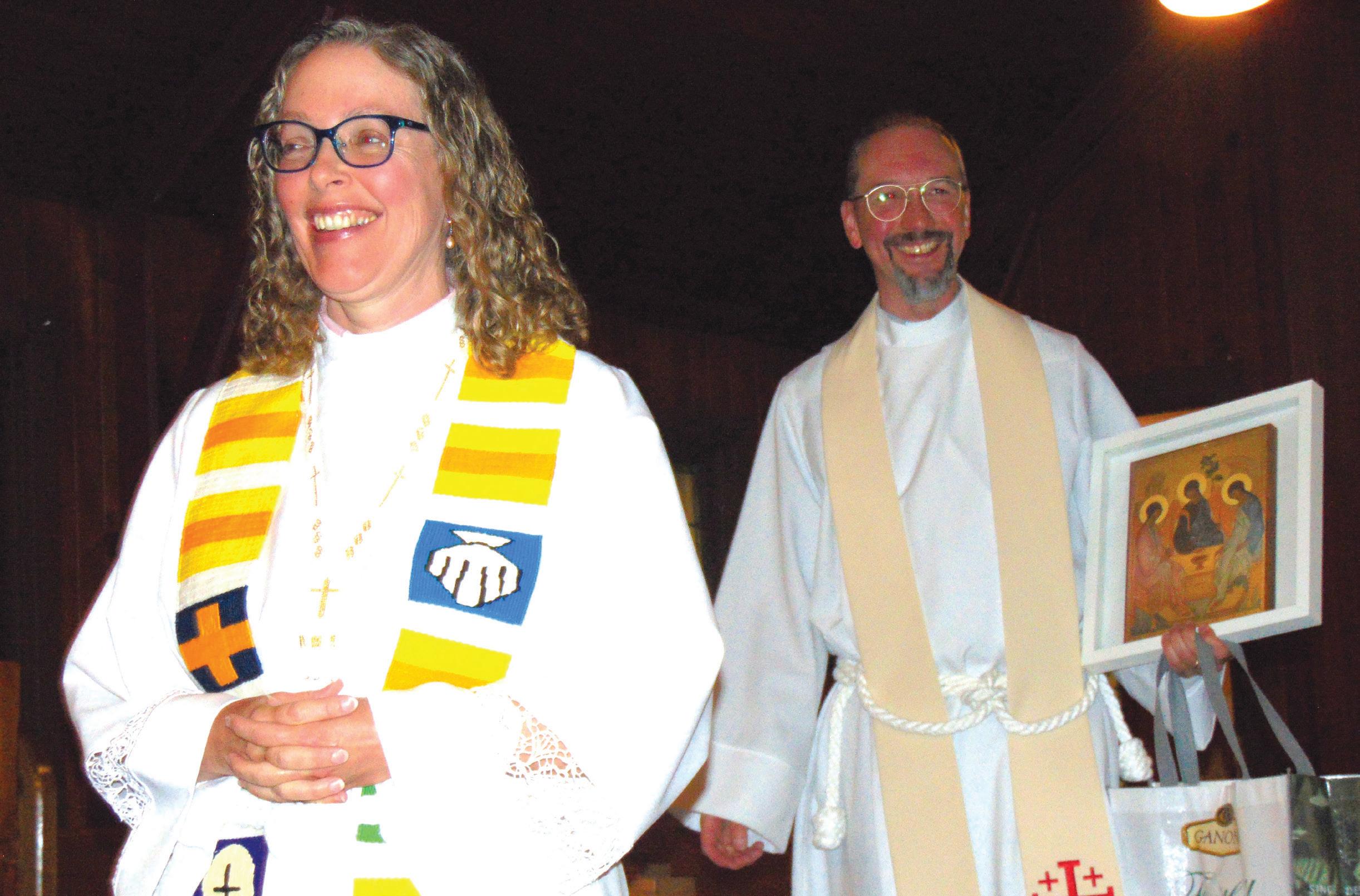
panelling with a triple stained-glass window behind the altar.
One of the wardens brought his laptop and provided the music. In the four-page bulletin were announcements about Joyce’s Soup Kitchen to be held once a month over the summer, the PWRDF donation of $15,000 to the birth support worker program (Indigenous Ministries Initiative) to support Indigenous women during pregnancy, birth, postpartum and into early parenting, a men’s retreat and a Head Start Preschool graduation.
They were a welcoming and friendly group of about 10 people.
Next, we went to Christ Church in St. Andrews at 11 a.m. This church has quite a history. It was founded in 1802, and in 1809, the first Christ Church was erected and
then destroyed by fire in 1818. The second Christ church was built in 1820 and consecrated in 1826.
Then in July 1863, while an addition was being made to the chancel, that church burned to the ground. By September 1864 the third Christ Church was consecrated. This church is an example of the Gothic Revival Movement in New Brunswick.
It is considered one of the most interesting and successful translations of the Gothic style using wood instead of stone. It was huge and quite awesome with a busy engaged congregation.
Steven and Julie are assisting clergy in the Parish of St. Stephen with their daughter taking part in the services as the crucifer. They take turns celebrating the Eucharist and preaching.
It was Steven’s turn to preach that Sunday, with his topic being the trinity. Many people have trouble understanding the trinity.
Page’s approach was quite unique. He brought props, a baseball, his paint gun and a print of an icon painted by Andrei Rublev in the 15th century depicting three angels visiting Abraham.
God is like his paint gun. It is stored in its case, but to use it, he must attach the motor, the nozzle and the tank. One paint gun in three distinct parts. And a baseball has a three-dimensional shape: height, width and depth.
In reference to the picture, it is interpreted as a depiction of the Holy Trinity.
In it we see their unity, mutual deference and co-operation and sharing between the three.
Page then drew our
attention to the flower patterns in the woodwork, in the architecture of the building. Some flowers had four petals symbolizing the cross, (top, bottom, left, right) and others had three petals.
It is not a random or aesthetic choice, it’s a representation of the trinity. He finished the sermon by asking the congregation to stand and recite the grace.
Julie and Steve both work in their home.
Steven works for a nonprofit organization and Julie has two businesses, Independent Consultant at Julie’s Tea Shop, Independent Sipologist, and Owner and Creative Coach at Julie’s Craft Attic.
I had a very nice visit with them and their daughter Asta and Beni (the dog).
The Diocese of Qu’Appelle Anglican Women’s Gathering is Saturday, April 20, at St. Mary the Virgin Anglican Church in Maple Creek. This year’s theme is “Challenges Change Us.”
All Anglican women and friends are invited to come and join in the fellowship. Registration fee: $20.00.
Please send a cheque payable to: St. Mary’s ACW, Maple Creek c/o Box 1030, Maple Creek,
If you have questions or suggestions please contact: Edith Maddaford, Vice President at (306) 7442216 or esmadd@sasktel. net.
g Congratulations to Deacon Perry Siddons and his wife Andrea on the birth of their baby girl, Loralei Marie Siddons, on Feb. 12
g An Electoral Synod is planned for May 11 in Prince Albert to find a new bishop; see announcement letter in this paper
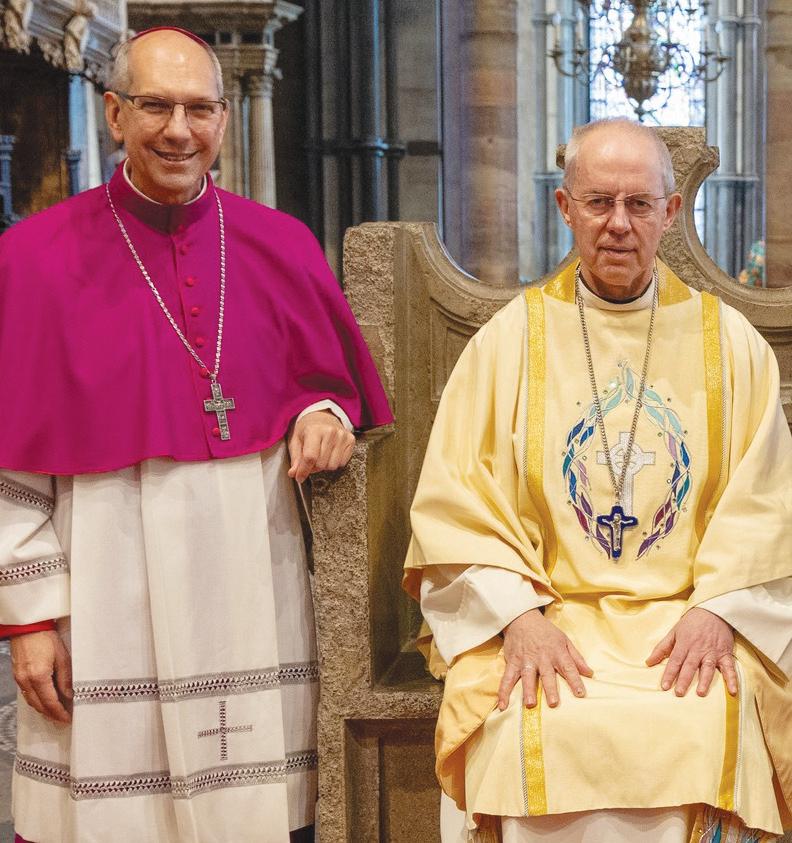
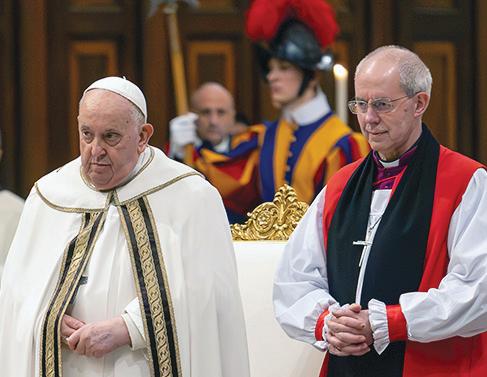
Continued from page 1 but also as a united call to the wider Church.
In its opening it says, “After four centuries of conflict and separation, the Catholic Church and the Anglican Communion have now been on a walk towards reconciliation for almost six decades.
At times, the path has been bumpy, but the Holy Spirit has been at work and our churches have persevered in a dialogue which has been extraordinarily fruitful.
“We willingly proclaim that our communion in Christ is a source of joy and life. While that communion is not yet full, decades of rich theological dialogue, nourished by prayer for and with each other, have brought us to a place where the bonds which unite us are deep and profound.
"Yet in our churches we have barely begun to do all that is possible to do together.
“It is the task and mission of the International Anglican Roman Catholic Commission for Unity and Mission (IARCCUM) to build on the results of that dialogue and to bridge the gap between the elements of faith we hold in common and the tangible expression of that shared belief in our ecclesial lives.”
Mindful of God’s sending us forth to engage in common witness, to
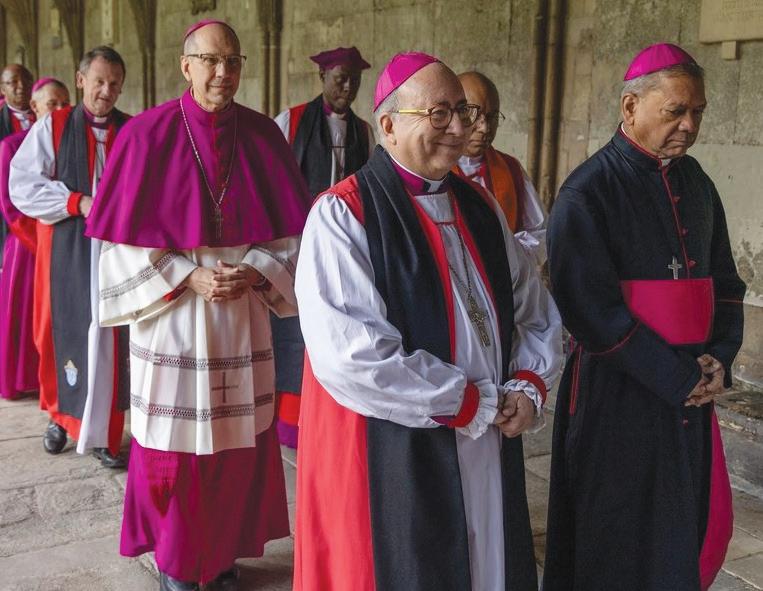
Bishops walk along a path as they participate in a multi-day conference.
build relationship of friendship in Christ, to walk a synodal path together and to share wherever possible in the Church’s mission, IARCCUM brings together bishops from across the world where Anglicans and Catholics live together side by side in significant number.
The statement goes on to make calls and invitations to the Church in the areas of witness, friendship, mission and synodality.
It says: “Synodality is not merely about the
Church’s governance; it is about putting relationships at the centre of the Church’s life.”
It references the words of Pope Francis to the bishops during their commissioning at St Paul’s outside the Walls in Rome: “First our brothers and sisters, then the structures.”
In its commitments on mission, the statement calls for working for the “flourishing of human life in every aspect. We cannot live in isolation from each other as churches.”
The commitment also
references the challenges and hopes of “Indigenous Peoples, descendants of enslaved persons and others that live with the legacy of ‘colonization’ and ‘assimilation.’”
Appeals are also made to be able to “hear and heed the voices of women and of minority ethnic groups wherever they experience marginalization or the denial of their human dignity.”
During the summit, participating bishops shared about the realities of the climate crisis,
including Bishops Marinez Bassotto and Teodoro Mendes Tavares from Amazonia.
The statement is clear in the call to “care for our common home,” echoing Pope Francis’s Encyclical on the Environment (Laudato Si’) and the recent Lambeth Call on the Environment and Sustainable Development issued by Anglican bishops during the 2022 Lambeth Conference.
The statement also makes a promise to proclaim the “Good News of peace to those in places scourged by ongoing wars.”
The Growing Together statement is an important comment from the IARCCUM bishops, not only on their sentiments during the meeting, but as an ongoing commitment to working for unity as they go home. It concludes:
“As we return to our own local churches after our pilgrimage in Rome and Canterbury, we pray that our ministry alongside one another as Catholics and Anglicans will be for the world a foretaste of the reconciling of all Christians in the unity of the one and only Church of Christ.”
For more news on Anglican-Roman Catholic Relations, and reflections from individual Bishops who attended the Summit, visit https://iarccum.org.
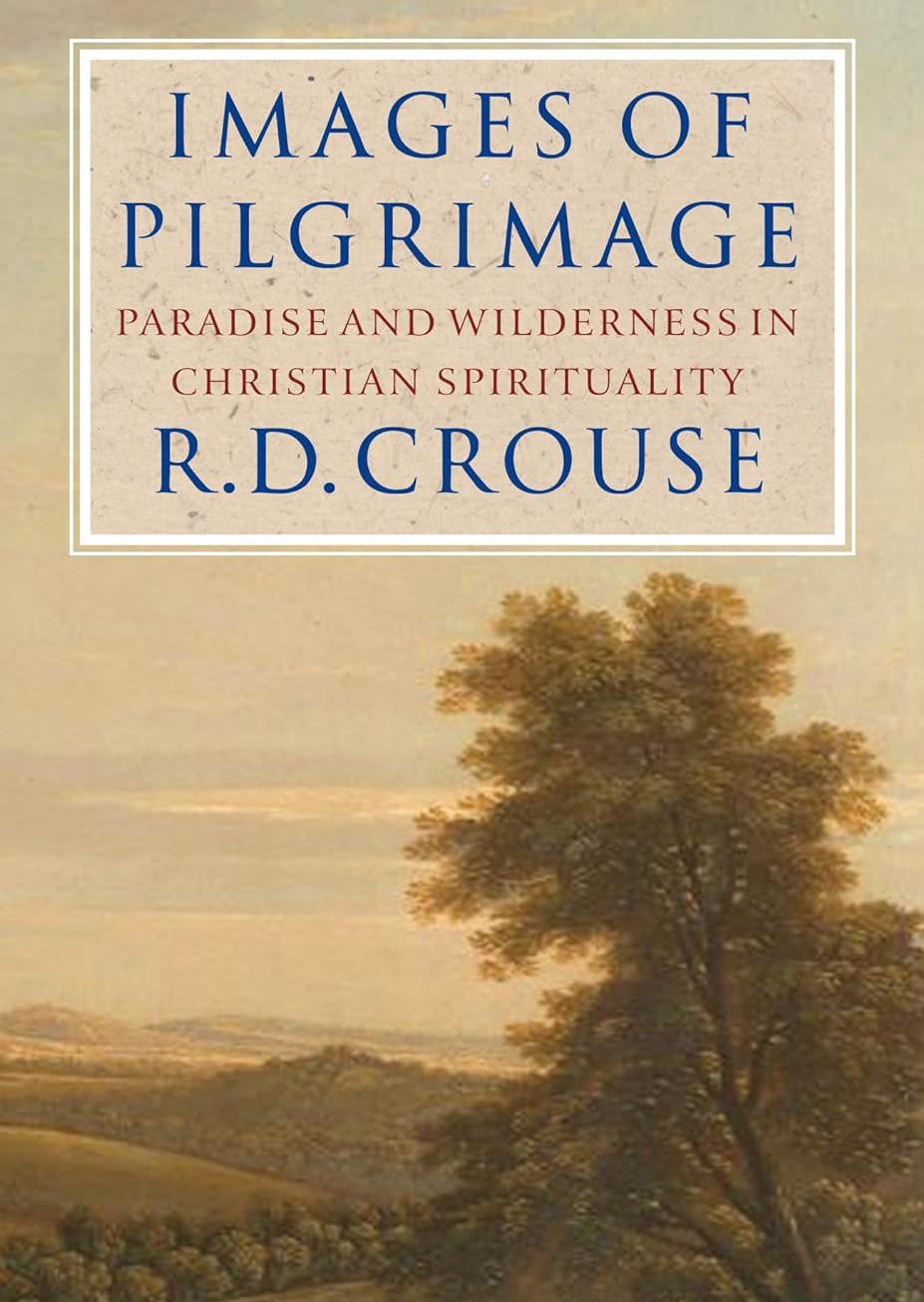 By Mary Brown
By Mary Brown
PRINCE ALBERT — For their Lenten assignment this year, diocesan parishes met once a week to discuss the writings of Fr. Robert Crouse in a book entitled “Images of Pilgrimage Paradise and Wilderness in Christian Spirituality.”
The book is a collection of six addresses given during the clergy retreat of the Diocese of Nova Scotia at St. Augustine’s Monastery in Monastery, Antigonish County, Nova Scotia in June 1986. One of the participants at the retreat was Bishop Michael Hawkins.
Images of pilgrimage inform the consciousness and aspirations of every human culture, from the most primitive to the most sophisticated, in modern as well as in ancient times, in every quarter of the globe. These images belong somehow to the essence
of our humanity; they are essential and permanent features of our spiritual landscape (Robert Crouse). Robert Crouse (1930 to 2011) was one of the great spiritual mentors of the 20 th century. He was a teacher, musician, preacher, gardener and a world-recognized authority on Augustine and Dante.
Deeply rooted in the Anglican tradition, he sought to recover for our time a vision of human life as pilgrimage. Fr. Crouse spent his entire life in his ancestral home in a small village in Nova Scotia called Crousetown.
He taught mostly at King’s College, Halifax but was in great demand internationally as a lecturer on the theological tradition of the ancient and medieval worlds.
Fr. Crouse was the canon missioner for the diocese when Anthony Burton was the bishop. He came for a visit on Bishop
Burton’s 10 th anniversary.
At that time, there were a number of clergy who had come from Nova Scotia and were eagerly awaiting his visit. The synod office hosted a talk by Crouse where everyone was invited. All the clergy were there and others.
I remember what Verna, our archivist, said about his talk. She attended his lecture, even though she felt it would be over her head; instead, she was impressed at how she understood his message despite his status as a scholar.
He and I spent some time talking, and afterwards, a priest came to me and asked me what we were talking about. We talked about gardening perennials, lilies and fruit trees. A few years later I went to Nova Scotia and visited him at his home and toured his garden. It was something I will always remember.
One of the joys of teaching and leading at the College of Emmanuel & St. Chad, is the opportunity I have to interact with a diverse range of students and colleagues.
Although many of us fit the stereotype of the white middle-class Canadian, many do not, and so our classroom conversations are drawn into a bigger world than any of us could imagine by ourselves.
It’s in that context that I’ve come across a teaching tool my students and I have been using, to remind ourselves to keep re-examining the perspectives we have grown up with.
The acronym WEIRD, popularized by author Joseph Henrich, stands for Western, Educated, Industrialized, Rich and Democratic.
While those are not qualities to be embarrassed about, when combined, they describe only a small minority (12 per cent) of people in today’s world. Those of us who fit the description are also not always aware
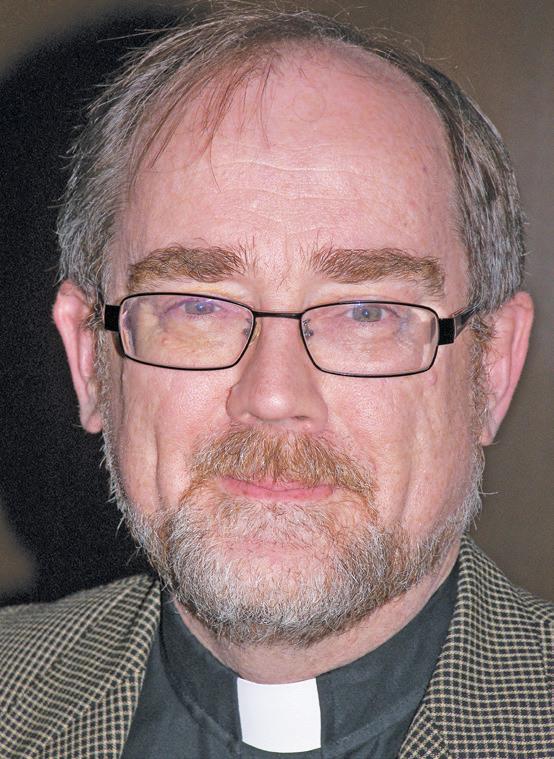
that our experience is unusual, or even “weird,” compared to the lives the vast majority of our fellow human beings are living.
The acronym first came to light in a review of psychology studies, which observed that people from WEIRD societies respond in noticeably different ways, for example to tests of visual perception that measured whether people are fooled by illusions.
This was just one example of the way we might take our own perspective for granted, as we look at the world.
In the theology classroom, other examples come to the surface very quickly. I recall one church history class, where students were present who could describe
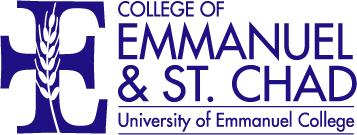
and reflect on the reality of living in countries in deep poverty, or under dictatorship, or controlled by a foreign power.
This helped us appreciate the range of experiences in Anglican history, which is often written from the point of view of missionaries sent from wealthy, educated, democratic societies to the rest of the world.
Those who actually received the gospel, living in very different circumstances, learned to practise their faith in their own way, and we are only just beginning to pay attention to those stories.
Another aspect of WEIRD society is the way we filter our mental perceptions of the world through the lenses of hard science, medicine, or economics.
These streams of thought draw on our access to formal education and expertise in the
“Western” model, but they are not the only way of looking at the world.
Land-based learning, and collaboration between scientific analysts and Indigenous custodians of the land, are becoming more and more visible ways of expanding our outlook.
While wealth, education, and political freedom can provide obvious advantages for those of us who enjoy them, this is not always the case.
As we look at the multiple crises facing our contemporary society, we may be paralyzed by thinking that even with all these advantages, we seem unable to do anything about climate catastrophe, systemic poverty, or the erosion of democratic norms.
For many in our society, this paralysis leads to despair, a loss of hope. Yet that, in turn, is not
the norm within human experience.
For most of human history, right up to today, people have faced deep crises, and acknowledged that it is a normal part of human experience to go through severe challenges, including war, persecution, famine, forced migration, and other extraordinary disruptions.
The normal human response, in these situations, is not to give up or assume there is no way through. Instead, it is to keep living, keep surviving, keep looking for ways forward. Although this doesn’t always feel like hope, it is in fact a lived expression of hope.
So this kind of hope in action may be something that those of us in WEIRD societies need to learn, from the people with whom we share this world.
As we imagine, and perhaps fear, the loss of some of the advantages we live with, we can learn that our resilience, our hope, and our capacity for faith, does not depend on any of those advantages.
Instead, it is a built-in part of the human nature that we believe God has given to people of all different cultures and backgrounds.
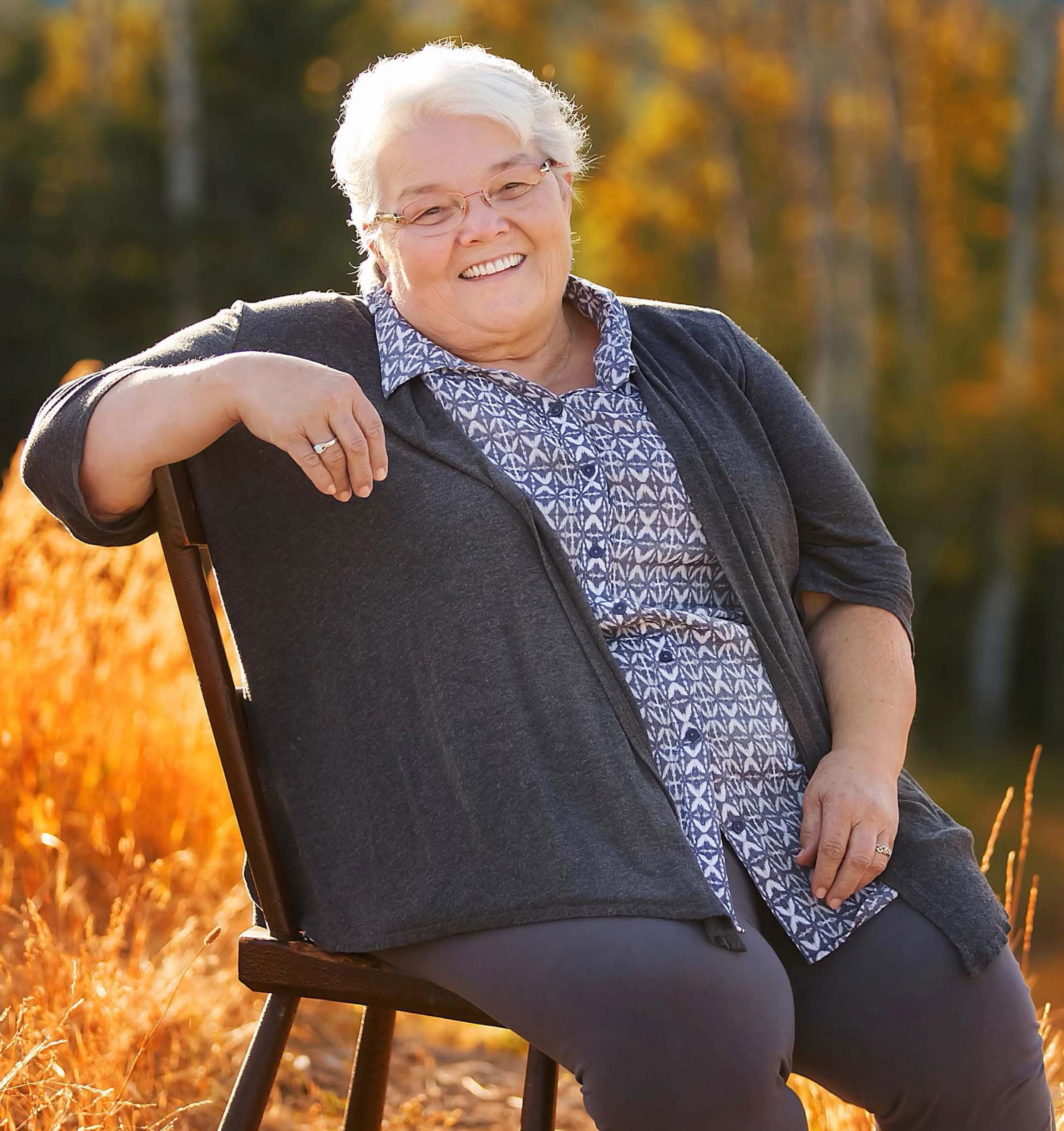
Parker J. Palmer’s book A Hidden Wholeness includes the following Hasidic tale: The pupil comes to the rebbe and asks: “Why does Torah tell us ‘to place these words upon your hearts?’ Why does it not tell us to place these holy words in our hearts?”
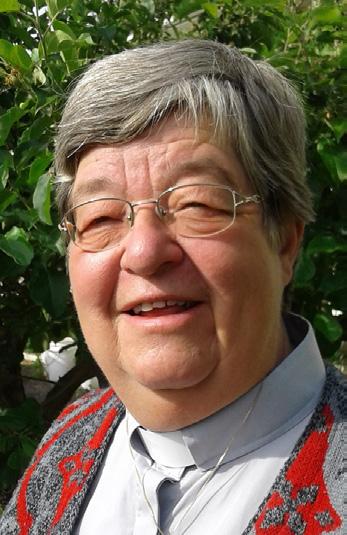
"The rebbe answers, “It is because as we are, our hearts are closed, and we cannot place the holy words in our hearts. So, we place them on top of our hearts. And there they stay, until one day, the heart breaks, and the words fall in.” Palmer, (pg. 181).
The tale stopped me in my tracks. One day the heart breaks, and the words fall in. Anyone who loves fiercely knows well the pain of a broken heart. Loved ones betray us or fall seriously ill, and our
hearts break. Cherished lives get shattered by abuse, accidents or war, and our hearts break into a million pieces. Adult children make bad decisions or reject values held dear by parents, and hearts break in seemingly irreparable ways. We all want to avoid this fate, yet the risk of a shattered heart is an integral side-effect of loving.
But, as Palmer points out, there are two ways our heart can break: in a million pieces and seemingly irreparable, yes. But by the same token our hearts can “break open,” open into a new horizon of meaning, open into greater insight and wisdom, open into a deeper and wider loving.
This type of breaking open is not without pain, but one that holds a promise of growth: “As I stand in the tragic gap between reality and
Submitted
ROCANVILLE (Qu’A) —
Rev. Delta Kelly died in her home on the family farm on Feb. 17, surrounded by her family, prayer and song. She always had a strong faith and relationship with God.
Kelly was locally raised by her parish of Saskatchewan Gateway, and was ordained to the diaconate in June 2002 by Bishop Duncan Wallace, and to the priesthood in November of the same year.
She served as priestin-charge for St. Thomas, Rocanville, until she retired in 2016.
In her ministry, Kelly served both Anglican and United Church communities, and showed love to people of every faith and tradition.
Her obituary said, “Delta shared her heart and love with everyone in the community.”
She shared God’s message with people in Rocanville, Welwyn, Spy Hill, Wapella, Moosomin and beyond.
Born Delta May Blakley in 1945, she was the fourth of 11 children and grew up on the family farm in the Tantallon area. She taught in small-town
possibility, this small, tight fist of a thing called
Closer to home, the lightning-speed changes in society are causing tectonic plates to shift and crack on all levels. Many, especially the older generation, truly struggle to absorb, integrate and appreciate the shifts, causing waves of grief at what is being lost. I hear this lament in parishioners and friends; I see it in bittersweet nostalgic memes on Facebook.
my heart can break open into a greater capacity to hold more of my own and the world’s suffering and joy, despair and hope” (Palmer, pg. 178).
Now to be sure, there are plenty of legitimate reasons for heartbreaks beyond repair. The current lethal brutalities in various parts of the world do not exactly make our broken hearts automatically “fall into” new wisdom and insight.
Apart from the fact that violence rarely leads to lasting peace, the trail of countless broken hearts, not to speak of the death
schools for a few years, but as her obituary states, “Her true dream was always to be a farmer’s wife with a large family.”
This dream came true when she married Terence Kelly in 1968 and moved to the Kelly Family Farm in the Qu’Appelle Valley southeast of Spy Hill. They raised their five sons — Brian, Anthony, Blake, Patrick and Craig — and ran the farm together until Terence’s death in 1995.
Kelly’s greatest loves were her family, her faith, and music. She often combined these loves by singing and performing with her family and others at community and church events.
Kelly is survived by her sons, their wives, 10 grandchildren, her brothers Glenn, Rod, and Ben, sisters Shelley and Audrey, and many in-laws.
The funeral was held at the Nutrien Community Hall, Rocanville, on March 2, with Bishop Helen Kennedy officiating.
Memorial gifts may be made to St. Thomas Anglican Church Memorial Fund (cheques payable to Saskatchewan Gateway Parish, Box 604 Moosomin, S0G 3N0).
and destruction, will take generations to heal and repair. Closer to home, the lightning-speed changes in society are causing tectonic plates to shift and crack on all levels. Many, especially the older generation, truly struggle to absorb, integrate and appreciate the shifts, causing waves of grief at what is being lost.
I hear this lament in parishioners and friends; I see it in bittersweet nostalgic memes on Facebook. Sometimes that struggle and grief gets misinterpreted as closedmindedness, rigidity or worse.
The excitement of new social and cultural open doors leaves little patience or understanding for those who mourn the loss of a world others might have never known.
Then there is the global rise of far-right politics, arising from a growing sense of frustration and cultural/social displacement ignored by governments. How far can tolerance and inclusion go until it bleeds into a sense of perceived exclusion and disenfranchisement in established population groups?
How far can our own sense of integrity be stretched until it feels like snapping? Ignoring such developments might well be at our own peril.
Parents in particular live the tension between the two types of heartbreak acutely. Every time a loved one veers away from deeply cherished values and norms, whether in harmful or unexpected life choices, laced with risks and unknowns, parents’ hearts break.
It requires herculean Continued next page


Continued from page 2 sisters ought not to wound one another. But, the devil need not attack the followers of Jesus directly if he can just get enough of us fighting amongst ourselves.
In this case God’s armour protects us from becoming bitter or cynical even if we feel attacked or betrayed by family or friends. Their failure to be armed against such distortions need not cause us to abandon our own armour or our own faith.
Romans 13 simply calls it “the armour of light.”
Perhaps this suggests that being armoured includes allowing ourselves to be examined so we can be corrected, healed and comforted.
Jesus contrasts this with guiltiness that would rather hide itself than be exposed (John 3:19-21). Being armoured by light suggests knowing that our shame is now covered by the one who bore it for us.
We are able to enter the “good fight” with humility, gratitude and gentleness as people who are redeemed, restored, and free from shame.
Continued from page 8 efforts to wilfully choose to break open into new ways of loving, however much we want to.
As I’m living through yet another mother’s heartbreak, the message in Palmer’s book leaps off the page. How do we keep loving when painful developments break our hearts?
How do we honour cherished beliefs and values when these no longer stir young hearts and yearnings?
What once provided structure and meaning for generations (even with suffocating shadow sides) today no longer seems to do so.
As the award-winning author John Vaillant said in an interview with The Guardian about his book Fire Weather: “We’re so attached to the old world we grew up in. We built all our responses, planning and infrastructure around a world that really doesn’t exist anymore.” (Nov. 17, 2023)
While Vaillant referred to the ever more dangerous climate changes, the analogy fits. While we hunger for perfection, we become attached to every world we create even as it mirrors our flawed and limited humanity.
Even when minority groups finally achieve society’s recognition and dignity, others can feel sidelined and dismissed, whether real or imagined. Even when our hearts
break open into a deeper embrace of difference, we can still feel cherished beliefs and values being stepped on. And on and on it goes.
And then I remembered, just in time. I remembered that there is One who survives and transcends every world we build; only One. There is One to whom I cling as trustworthy guide, protector and support.
Jesus experienced heartbreak, at the lack of faith around Him, at the hypocrisy and conniving of religious leaders, at the callousness of bystanders, at the death of His friend Lazarus, at the betrayal of His own close friends, as He faced His own death.
How did He hold Himself together? While most of us stop at the million-pieces-shattering heartbreak, Jesus’ lifelong complete union with God helped Him move through to the second type of heartbreak; the one that broke Him open so that God’s love, grace and mercy could fall into His shattered heart and thus flow into each hurting heart ever since.
Heartbreak is the price we pay for caring and loving.
Would that we could lean into the daily heartbreaks in ways that allow God’s love and mercy to fall into us to sustain and heal, to inspire and move us into embracing the new and unfamiliar without fear and grief.
MOOSOMIN (Qu’A) — St. Alban Church has teamed with the Moosomin Visual Arts Centre.
The church and parish hall were connected in 2001 to form a large venue, but recently, most space has been underused and, with declining membership, hard to maintain.
Following several months of negotiation and consultation with Bishop Helen Kennedy, an agreement was reached with the arts group. The church itself will continue to function and offer weekly services with lay and visiting ministerial.
The rest of the building will host art programs including drawing, painting, cooking, sewing, macramé, digital art, pottery and writing.
Continued from page 11 in Morning Prayer and the Magnificat and Nunc Dimittis in Evening Prayer. We respond to inspired words of Holy Scripture with properly Trinitarian worship.
The Holy Ghost/Spirit is worshipped and glorified along with the Father and the Son. The Book of Alternative Services (BAS) has these worship capsules, too.
It is all too easy to say it all routinely and without thinking, of course, just as I am likely to do with my prayer-ending “amens.”
Routine is one of the dangers of liturgical worship. The words become familiar as we wear our habitual path through them day by day or week by week. They become part of what critics call “empty rituals.”
The solution is to fill them by applying my heart every time I read, say or sing them. Worship can be “hearty” even with no music or in silence. The Helper (John 14:16) himself helps with that and God is verbally worshipped and glorified in Three Persons.
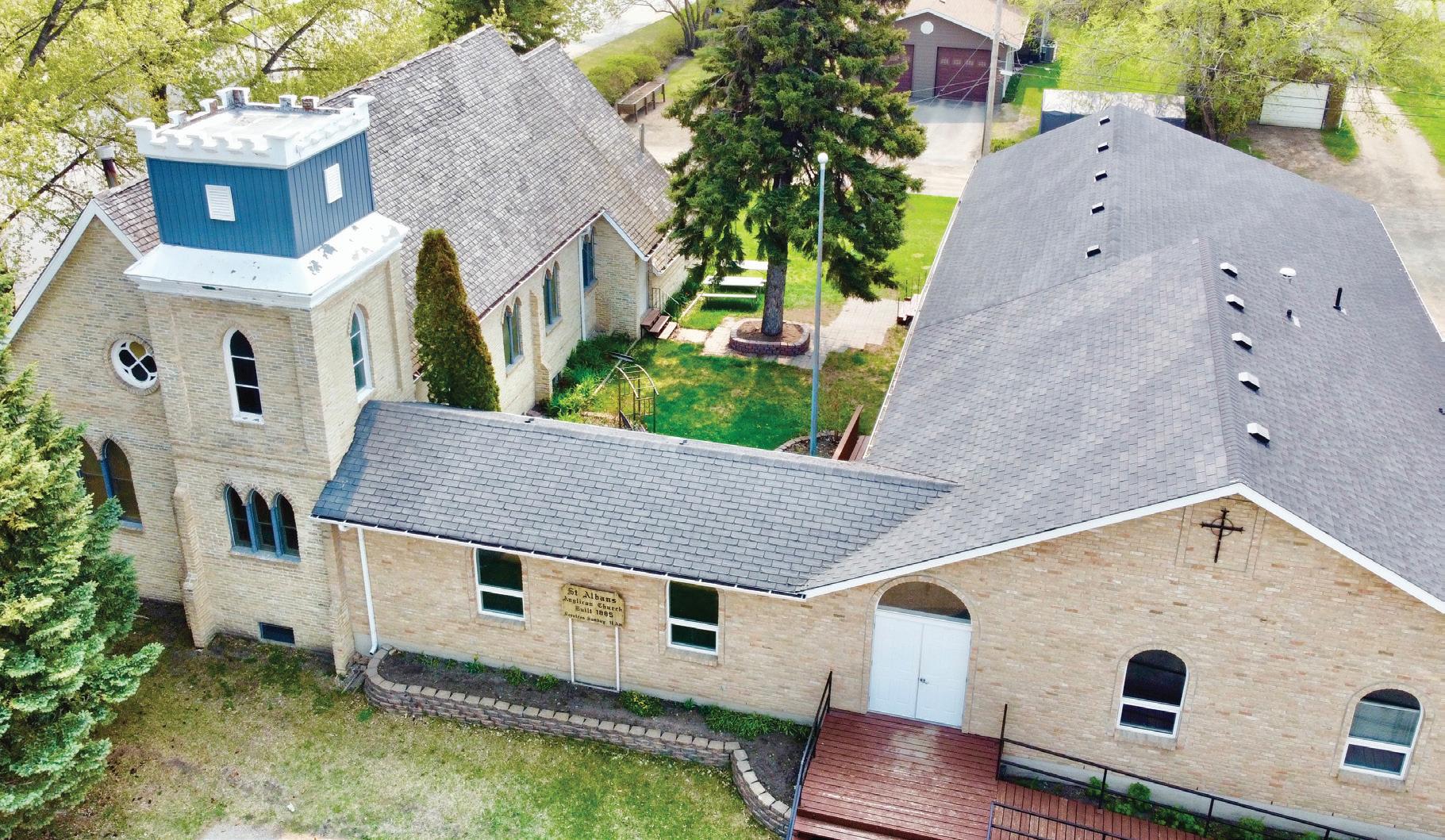
St. Alban Church.
Programs will be offered for adults and children with a focus on after-school programs and open studio time so people may work on crafts within their schedules.
“It’s going to meet a need in the community,” Kara Kinna, a rep with the Moosomin Visual Arts Centre, said in an article in the Jan. 29 issue of Moosomin World Spectator
The group has set its first display for April. The church members are pleased to welcome the group. They feel that prayer and the Holy Spirit guided the outcome. A
story in the local paper caught the attention of one church member, a text was sent to a member of the Visual Arts Centre, and following several meetings and “interventions” an agreement was reached.
The art found in the church design and stainedglass windows is unique and beautiful, and the building itself provides a peaceful and calm environment.
The church is one of Moosomin’s earliest buildings, built in 1885. It was originally built for community and fellowship. This will also continue as it will be used by many people. Perhaps some who enter, who would never have been exposed to this sacred space if not for the arts group, will find peace here and seek to know the Lord and find comfort in His presence.

LUMSDEN (Qu’A) — Jimmy and I immigrated from England with our children, and lived in Kelliher from 2007 to 2017.
Our church story involved going to a neighbour’s home every few months to meet with a handful of other Anglicans and have a mini-service led by Ken Buchan, who travelled from Yorkton for the occasion.
We had tried the local United church, which was quite lovely, but unfortunately between ministers. Besides, our little home-based congregation always had a potluck. It was no contest.
This neighbour shared many fond memories and stories of the little old Anglican Church that stood only a couple of blocks from her home. She recalled most of the congregation by name, and remembered the organist and the succession of ministers who presided.
The old church had been long de-consecrated when we lived there, and we believed we would never get to see the inside of this place so revered by stories and memories.

As time went on, the little food-laden gatherings at our neighbour’s became less frequent, as Ken, already retired, travelled less often. We sought pastures new and found St John’s Anglican Church in Fort Qu’Appelle. Warren Huestis was the new minister there, and we were a new foster family with vast numbers of children in tow. It was a good fit! Jimmy became one of the church wardens, and Warren and his family became friends who visited us for supper sometimes, with their children enjoying sleepovers at our farm.
The person in charge of diocesan property, Lawrence, learned that Jimmy and I lived near Kelliher, and were driving to St. John’s each Sunday.
Our lovely neighbour who had hosted those small Anglican gatherings made the connection, and introduced Lawrence to us. The shabby old Kelliher Anglican church was a diocesan concern,
Anglican Renewal Ministries (ARM) Canada promotes the Anglican Prayer Book tradition of prayer, both private and corporate.
Holy Spirit-filled prayer books ensure that all the important devotional bases are covered: confession, worship, intercession, petition and Scripture reading.
The Holy Spirit brings us God’s love and power. He also sanctifies, regenerates, strengthens, fills, sustains, seals and

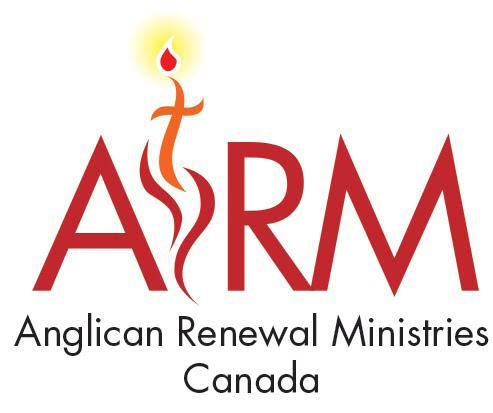
renews us, more and more, and daily. Holy Spirit-filled people, even introverted Anglicans, faithfully and systematically praying the words in Holy Spiritfilled and inspired prayer books, cannot help but be a powerful, spiritual force with which to be reckoned.
Absolutely
Lawrence said, and thoughts of demolition morphed into the tentative age-old church-related question of “would there be anyone interested in volunteering?”
The place was incredibly dilapidated, with two locked doors so rotted they just pushed away from their frames. Now don’t tell anyone, but there was neither thought nor care for Occupational Health & Safety; Jimmy and Warren were noble volunteers for the cause, and work began then.
It was slow and painstaking as boards were stripped from the upper floor where former ministers had temporarily lived. Downstairs, across a very dodgy, spongy and sea-sickness-inducing floor, several pews remained.
The altar still housed a few unclaimed artifacts, and there were old cobwebbed and dusty curtains around a small area to one side.
We found new homes for the salvageable pews in the community, and some of the framed altar memorabilia found a new home with our beloved neighbour; their biggest fan. I took down the curtains and laundered them, wondering if they would survive.
They were old, and stained, and filthy. But they were also a beautiful high-quality velvet, and
after a few rounds through the laundry and a spot of hand-scrubbing, they were restored to a vibrant, deep red.
I have been a keen hobby seamstress most of my adult life. Sewing is my drug of choice. Somewhere in the mid1990s I had gone to an Ideal Home exhibition, in Shrewsbury, England, with my mum.
There were a few designers displaying their handicrafts, and one in particular caught my eye, with a stunning multicoloured velvet coat — long sleeves, mid-thigh finish, tailored fit. I fell in love! But the price tag put it well and truly out of my reach.
It took a lot of years of building courage, confidence and cache, beginning with that beautiful Kelliher church velvet, added to with many other story-laden fabrics, from high-quality cotton velvet to lesser polyester velveteen, but I finally made my own version of that coat.
It is bold, bright and beautiful, and has undergone some alteration as I (ahem) gained a tiny bit of weight. I wear it with pride, love telling the story, and can always be spotted in a crowd!
Jo and Jimmy White attend All Saints, Lumsden in Plain and Valley Parish in the Diocese of Qu’Appelle.
Even though they often pass by without our paying too much attention, the Holy Spirit’s power and presence are consistently and frequently invoked in our prayer books.
Consider, for example, how the Orders for Morning and Evening Prayer — “Daily to be said throughout the year” — begin. (Daily?!?).
After one of the opening sentences of Scripture is read and the General Confession is prayed, the priest prays that Almighty
God, the Father of our Lord Jesus Christ, would “grant us true repentance and his Holy Spirit, that those things may please him which we do at this present, and that the rest of our life hereafter may be pure and holy; so that at the last we may come to his eternal joy; through Jesus Christ our Lord” (The Book of Common Prayer (BCP), Anglican Book Centre, 1962, pp lvi, 5 & 20)
What a great set-up for what is to follow! The benefits of true repentance and the presence of the Holy Spirit in our lives are amazing: the things we do please God, our lives become pure and holy, and our final destination is “his eternal joy.” What could be better?
Glory be… Then we pray the
Lord’s Prayer, ask the Lord to open our lips so we can praise Him, and to save and help us before giving God glory in a brief declarative statement of worship.
“Glory be…” – a worship “capsule” that can be used anywhere, no matter whether you’re alone or with someone else, even when you don’t have a band or organ handy. It’s like a mini hymn or worship song, only without music:
Glory be to the Father, and to the Son, and to the Holy Ghost ; As it was in the beginning, is now, and ever shall be, world without end. Amen. (BCP, p6)
This deceptively short but profound hymn is then repeated after the Venite and Benedictus
Continued on page 10
Jo White shows off her "coat of many colours" that she made using curtains from the old Kelliher church. Photo submittedAll of the coursed listed below will be available online. Folks are to register for courses at: esc-wecan.
ca
To Register for the Licentiate in Theology Program, ask your Diocese for L.Th. Program Application Form
Individuals may take these courses to enrich their own spiritual life, better equip them for current ministries or take while in discernment about a formal vocation
Biblical Studies: Saskatoon Diocese April to May 2024
Thursday, April 4 7:30 to 10 p.m. Introduction to the Bible, Wei Luo
Thursday, April 25 7:30 to 10 p.m. Introduction to Hebrew Scriptures Matteo Carboni
Thursday, May 2 7:30 to 10 p.m. Synoptic Gospels Adam Wright
Thursday, May 9 7:30 to 10 p.m. The Gospel of John Wei Luo
Thursday, May 23 7:30 to 10 p.m. Biblical Exegesis, Bernon Lee
Thursday, May 30 7:30 to 10 p.m. Pauline Letters Adam Wright
Biblical Studies: Qu’Appelle Diocese, Dates Pending - check escwecan.ca.
Anglican Studies: Jan. and Feb. 2024
Kootenay and ESC Just Concluded, Instructors: Archbishop Lynne McNaughton and Principal Iain Luke

Theology: Qu’Appelle Spring or Early Fall 2024
Dr. Joel Houston Briercrest online - check escwecan.ca.
St. John’s College Winnipeg: Ryan Turnbull “EcoTheology” Dates Pending - check esc-wecan.ca
Eco-Theology course requires student to register and pay through St. John’s College Winnipeg.
St John’s College | University of Manitoba (umanitoba.ca)
Liturgy: Fall 2024
Sponsoring Institution
Pending Register: esc-wecan.ca
Sept. 13 7:30 to 9:30 p.m. & 14 10 a.m. a.m. to 5:00 p.m. SK time and Sept. 27 7:30 to 9:30 p.m. & 28 10:00 a.m. to 5 p.m. SK time
Instructor: Rev. Dr. Richard Leggett, VST Professor Emeritus
Pastoral Care: Fall 2024 SaskatoonThursdays Evenings: Oct. 3, 10, 17, 24, Nov. 7, 2024 7:30 p.m. to 10 p.m. SK time Register: esc-wecan.ca
Instructor: Rev. Dr. Trish McCarthy
Teaching and Learning: Stages of Faith, Education and Nurturing Children in Faith Fall 2024, Qu’Appellewebsite for finalized dates
Register: esc-wecan.ca
Spring 2025 Saskatoon
Thursday evenings: Feb. 6, 13, 20, 27 and Mar. 6, 2025 7:30 p.m. to 10 p.m. SK time
Register: esc-wecan.ca
Instructors: Rev. Fiona
Brownlee and Rev. Dr. Trish McCarthy
Leadership:
Athabasca and Saskatoon Group Discernment and Conflict Mediation Register: esc-wecan.ca
Late Fall 2025 Thursdays, Nov. 6 – Dec. 4, 2025 7:30 p.m. to 10 p.m. SK
Time, Instructors: Bishop David Greenwood Athabasca and Rev. Dr. Trish McCarthy
Spiritual Practices and Spiritual Formation: Register: esc-wecan. ca, Fall 2025 Saskatoon Thursday evenings: Oct. 2, 9, 16, 23 & 30, 2025, 7:30 to 9:30 p.m. SK time
With all-day Saturday online retreat on Oct. 26
Instructor: Rev. Dr. Trish McCarthy
Homiletics: Saskatoon and Kootenay, Dates Pending - check esc-wecan.ca
Instructors: Rev. Iain Luke and Rev. Dr. Garry Schmidt
Integrative Internship / Field Placement: Dates as needed.
Potential Instructors:
Rev. Dr. Iain Luke and Rev. Dr. Trish McCarthy
Ethics - Offered Soon: Qu’Appelle, Dates Pending - check esc-wecan.ca
Indigenous Relationships and Wisdom and Teaching of the Elders: Dates Pending - check escwecan.ca
Facilitator:
Rev. Dr. Kara Mandryk.
Potential Instructors: Will be chosen in consultation with First Nation Elders based on their special areas of interest and expertise from various backgrounds and geographical locations.
Submitted
For info: 306-2421916, programming@ queenshouse.org , www. queenshouse.org.
QUEEN’S HOUSE RETREAT AND RENEWAL CENTRE
Centring prayer –
All are welcome to gather in-person or on Zoom on Monday evenings, 7:00 to 8:15 p.m.
This drop-in gathering includes a 20-minute sit, additional insights regarding contemplation and centring prayer from the great teachers will be part of every evening in the form of videos, and time for group sharing.
Register online to receive the Zoom invitation/let us know that you will be coming
welcomes you! Our ecumenical programming combines in-person and online events using Zoom. Visit our webpage for upcoming programs and to register for all programs. Nourish Your Mind and Nurture Your Spirit at Queen’s House! For inquiries/ additional information contact Sarah Donnelly, Programming Director: 306-242-1916 x226.
in person. There is no fee to attend these gatherings. Donations to support the ministry of Queen’s House can be made on the website. For further info call 3062421916, ext. 222.
Spiritual direction:
If you are interested in having a mentor and companion to accompany you on your spiritual journey contact Sr.
Adeline Behm - email spiritualdirection@ queenshouse.org or to see a list of our affiliated spiritual directors. In-person and online meetings are available.
Selection of courses
Some of the courses that Queen's House Retreat Centre has ongoing include:
• Taizé Prayer; members of the L'Arche community lead this activity, which is offered the second Wednesday of the month.
• Remaining grounded in times of chaos; a silent retreat on Saturday, April 6 from 1 to 4 p.m., featuring several presentations and times for
meditation with other participants
• Transitions, a journey of transformation through grief and loss, Thursday, April 11 to Sunday April 14.
• Iconography: Five Days of Creativity and Prayer, Monday, April 15 to Friday, April 19.
• Is that all there is?
A workshop about finding meaning and peace in challenging times, set for Saturday, April 20 from 8:30 a.m. to 4:30 p.m.